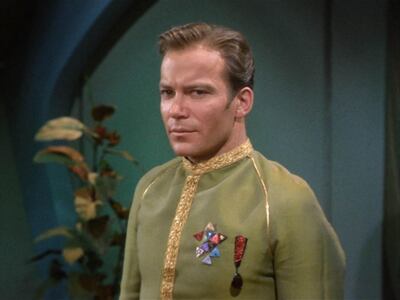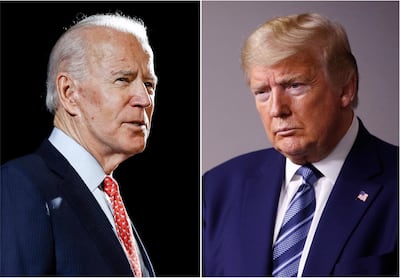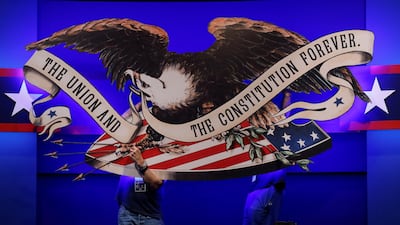I have only ever casually watched the television series Star Trek, and I tend to be out of my depth when using science fiction to analyse real-world politics. But one of the most unforgettable scenes in the entire series is about the "Kobayashi Maru", a training simulation for cadets at a futuristic military academy in which, unbeknownst to them, the only outcome is mortal failure. It is, as the series describes, a "no-win scenario", and the sole purpose of the exercise is for the cadet to understand and accept inevitable failure and certain death, and to test their character under those circumstances.
What is the point of character, one might ask, in the face of certain death? What is the utility of virtue in the face of defeat?
According to the Starfleet Academy, it is to cultivate the kind of leaders who will put the principles of the system above their own lives. Though they may not survive, their example reinforces the supremacy of those ideals for those who come after them, and ensures the integrity of the system.
The real world is increasingly short of such leaders. It is becoming instead more common for leaders to follow the example of Star Trek's protagonist, James T Kirk, who famously refused to accept the no-win scenario. That sort of gumption worked out very well for Kirk, because he is the hero of a fictional series. In our world, it is breeding disaster.

“We are going to start winning again,” Donald Trump declared in 2016 at the climax of his US presidential campaign. For too long, in Mr Trump’s mind, Americans had been losing at trade and losing at war.
The entire Trump presidency has been built, at least in its rhetoric, on this attitude of winning at all costs – both in terms of US policy and in terms of the President’s own career.
Earlier this week, in these pages, Hussein Ibish outlined a hypothetical progression of events that could transpire should Mr Trump refuse to accept defeat in the coming election. The early stages of that progression, Ibish argued, were in fact not so hypothetical. They are already in motion, with Mr Trump publicly undermining voters' trust in postal voting and heavily implying to reporters that the only way his challenger could win was through mass fraud.

Scarier still is the prospect that Mr Trump's Republican party might back this position – in which case the US election result could, for the first time in recent history, result in a months-long legal dispute with no clear, constitutional way out and no obvious popular consensus on who should be president.
In a country where two candidates claim victory and refuse to back down, the most extreme scenario is two self-proclaimed presidents. That possibility would strike most Americans – myself included – as downright absurd, though it has happened elsewhere.
In addition to being an American citizen, I am also an Afghan one, and for 69 days this year my Afghan self was served by two presidents. In February, Afghanistan released the results from its election. Both candidates, Ashraf Ghani and Abdullah Abdullah, claimed victory. They held competing inaugurations on the same day and occupied separate presidential palaces next-door to one another.
This was not only farcical, but deadly. The Afghan government was meant to be preparing for direct talks with the Taliban to end the country’s two-decade civil war, and an epidemic of coronavirus was about to wash over the country like a brutal tidal wave. We will never really know how many deaths could have been prevented in the long term without that 69-day delay to the country’s new political chapter.
Most of all, however, the situation was marked by selfishness. Mr Ghani and Dr Abdullah both claimed to be refusing to accept a no-win scenario in the service of their higher political goals, though the exact differences between their visions for the country were remarkably unclear. In the end, the crisis was put to bed by the US intervening and pressuring Mr Ghani to award Dr Abdullah a job as head of the government's peace negotiation team in exchange for the latter conceding defeat. It's worth noting that the US similarly intervened in the previous Afghan election by contriving for Dr Abdullah the special position of "Chief Executive".
Mr Trump and his challenger Joe Biden have much more distinct visions for America than the rival Afghan leaders had for Afghanistan. And each of their visions, to their own respective camps, is worth fighting hard for. But like Afghanistan, the US also faces an overwhelming coronavirus crisis. It also faces a deteriorating domestic security situation as a culture war is played out on the streets. The greatest lesson from Afghanistan's 69 days of parallel government is that without a clear victor, no vision is realised and nothing is achieved. Or perhaps a better way to say it is that without a clear loser, nothing is achieved.
The US doesn’t have a “US” to force its rival parties to the table. There is no paternalistic superpower to create a “Chief Executive” position for Mr Trump or Mr Biden. No one is going to teach Americans the virtue of losing, that victory is a long game and that good losers are more crucial to the health of the system than good winners. The only way Americans will shape their country's ideals successfully is by learning to be losers all on their own.
Sulaiman Hakemy is deputy comment editor at The National


